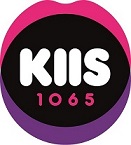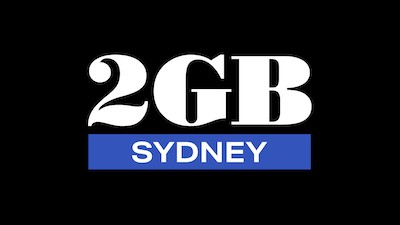2014 – the year radio will get its mojo back
.jpg)
AudioNET Founder and CEO Dave Cox started working in radio over 25 years ago at 2CA in Canberra.
2014 provides significant opportunities for the return of radio’s relevance.
In just under a week we kick of the first survey in over 60 years with a new ratings supplier, GfK. There’ll be different methodology, the introduction of digital diaries and a new quarterly behavioural tool Audienscope, that will gauge listener response to advertising, emotional connection to stations and motivations for listening. And that’s just the metro stations.
2014 also sees an exciting new time for regional radio with the introduction of the most expansive regional radio ratings ever seen in this country.
There’s also CRA’s rating Gold Standard, which allows a growing number of software companies to provide radio optimisation, R&F and other ratings analysis tools to the radio networks, media agencies and through them advertisers.
So 2014 is the year radio finally delivers timely meaningful data to advertisers.
And for the agency and radio staff that have to manage the complexity of campaigns, AudioNET’s RadioMATRIX® provides automatic data exchange, instantly confirming every change to every booking every day.
…Fresh programming ideas create new sales opportunities…
The danger is these “technical” changes will be downplayed as merely back-office functions that have nothing to do with programming and sales.
 But 2014 also sees the biggest overhaul of breakfast and drive-time shows, in most metro and major regional markets, since Paul Thompson left Austereo to set-up DMG’s original regional radio network. Also, let’s not forget that ARN have promised to deliver the Gen X media buyers a fresh new station KIIS to listen to while they plan their media schedule.
But 2014 also sees the biggest overhaul of breakfast and drive-time shows, in most metro and major regional markets, since Paul Thompson left Austereo to set-up DMG’s original regional radio network. Also, let’s not forget that ARN have promised to deliver the Gen X media buyers a fresh new station KIIS to listen to while they plan their media schedule.
These new programs have already ignited new sales interest and opportunities, and networks are backing their new teams with big money and big promotions.
This is where the usual, ordinary radio approach can become extraordinary – and capitalise on other changes to create a snowball effect on radio’s relevance and revenue potential.
Because even networks without new shows, also have a new start.
In 2014, the first survey stands alone. There is no data from last year’s survey 8. With the switch to GfK, survey 1 starts earlier than TV ratings and runs 6 weeks instead of the usual 5.
Agencies and advertisers will be forced to focus on radio advertising earlier than usual to capitalise on the hype surrounding the new program line-ups.
Inside the networks, content directors and sales directors will know if their new show line ups and station format tweaks or outright changes are a success in March, not June or July. The CEO's and CFO's will also know if they got value for money on the millions of dollars they put up for grabs in survey 1 promotions.

 We will all know in 8 weeks’ time did Ciaran Davis and Duncan Campbell play their cards right and if Kyle and Jackie O and KIIS are number 1 from survey 1, or did the millions of dollars and thousands of man hours put up by SCA keep 2Day number 1 FM in Sydney.
We will all know in 8 weeks’ time did Ciaran Davis and Duncan Campbell play their cards right and if Kyle and Jackie O and KIIS are number 1 from survey 1, or did the millions of dollars and thousands of man hours put up by SCA keep 2Day number 1 FM in Sydney.
The interest is certainly already there from agencies and advertisers, and sales teams of every radio network should be doing back to back meetings for the next few weeks, to capture the interest and momentum.
When the ‘technical’ changes of better campaign management, better ratings, regional ratings and ratings analysis are added to the programming changes, radio has a good news story for virtually every contact in every agency or radio advertiser: from marketing to CFO, traders to investment directors.
Every media agency investment director I speak to wants to know more about RadioMATRIX and Gold standard – so there’s the ice-breaker to set up back to back meetings with every agency.
There are two really important insights here.
1. The interest is about what’s happening in radio: media agencies, creative agencies and audio studios are genuinely pleased that radio is making changes for the better. Yes, the new line-ups are topical – but they want to hear everything new about RADIO. They’ll remember what network you’re from, even when you are talking up radio in general.
2. It’s not all about programming and promos. Sexy sales talk for media agencies is about data, ROI and efficient management. Again, not just your network either, about radio vs every other medium out there.
To borrow from CHE’s Peter Harvey: it’s not about networks fighting each other for a bigger piece of the radio pie – it’s about radio creating a bigger pie.
Let’s get on with 2014 – the year radio got its mojo back.
Dave is the CEO and founder of AudioNET, which provides radio material delivery and AirCheck monitoring for agencies and RadioMATRIX booking data confirmation for networks and agencies.



